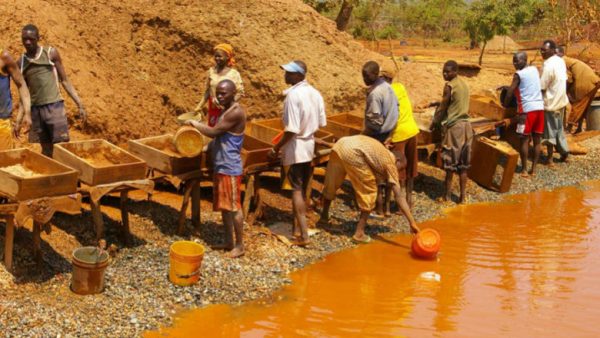Problems caused by illegal gold mining operations across the country have been a thorn in the flesh for the Government for years.
The police have had running battling battles with gold panners who have, for decades, thrown caution to the wind in search for the yellow metal along river beds, causing untold suffering on humans, wildlife and the environment.
Although Government has been on a drive to formalise and regulate unregistered mining operators, the illegal gold panning has continued to affect communities as the miners use mercury and other dangerous mining methods.
It is estimated that a total of 1,5 million people are engaged in artisanal mining across the country. However, only a quarter of that number is registered. The biggest cause for concern has been the use of mercury that has caused pollution to the water that people living in those communities cannot safely drink.
And this has been a cause for concern in Manicaland and Manica provinces for decades.
Riverbed mining by the gold panners has been a source of headache for the Governments of Zimbabwe and Mozambique as it has contributed to the pollution of two major rivers that are shared by the two countries.
According to research done in 2007, the sediment concentrations in Pungwe River vastly increased between 2003 and 2004 due to an increase of the informal gold mining activities.
The same had happened to Rusitu River, which originates from the Chimanimani Valley and stretches all the way into Mozambique.
The panners have resisted the call to stop riverbed mining as well as the one to stop using dangerous substances like mercury. Even strong arm tactics like bringing in the police to forcibly remove them have only seen them go for a while and coming back the very minute police turn their backs.
The bringing in of professional companies to take over riverbed mining in those contentious areas might be the one that will finally work.
According to the Manicaland provincial administrator Mr Edgars Seenza, Government has engaged a Belarus company to come in to sustainably mine alluvial gold along the Pungwe and Rusitu riverbeds.
“The Joint Operation Command made efforts to contain the illegal gold miners but they came back and continued polluting the environment. The plan now is to bring in companies that will mine sustainably along the riverbeds. The company will employ those miners who have been working there so they can continue to make a decent living through formal employment ,” he said.
The arrangement to bring in the Belarus company was part of the deals signed by Government in Belarus last year in March where the Minister of Mines and Mining Development Winston Chitando and the Chief of Presidential Affairs of Belarus, General Colonel Victor Sheiman, signed a joint mining deal for the extraction of alluvial gold. The company is expected to de-silt Zimbabwean rivers and recover minerals from the rivers.
The company is expected to mine along Pungwe River while another company would take over mining along the Rusitu River.
“We will have the Belarus company mining along the DTZ-OZGEO area. The company is already on the ground carrying out Environmental Impact Assessments (EIA) before they can move on site. Another company will take the area around the Rusitu River,” said Mr Seenza.
To augment this initiative, Government has been coming up with ways of adopting riverbed mining technologies used in countries such as Namibia and South Africa.
The only question, however, remains if the gold panners are willing to be tied down to a company and heed Government’s efforts to channel their expertise towards a more formalised way of working?
Business Weekly




